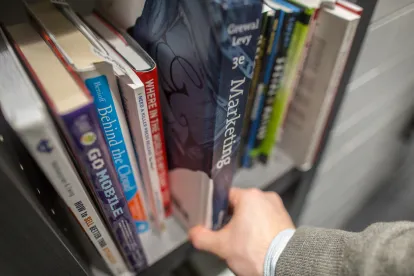After a quarter of a century, the school book nexus cases continue to proliferate, delight and mystify. The latest installment in the saga is from Alabama. Scholastic Book Clubs, Inc. 2931 v. State Of Alabama Department Of Revenue, Ala. Tax Tribunal, Dkt. No. S. 14-374 (March 25, 2016). Like the other cases, the question addressed is whether a vendor with no property or employees in the state nevertheless has nexus for sales tax collection purposes because of the activities of unrelated, and uncompensated, teachers in the state. Like all of the other cases, these teachers received unsolicited catalogs from the vendor and could either discard the materials or distribute them to their students. Like all of the other cases, if a teacher elected to distribute the materials, the teacher collected completed order forms and payments from the students and mailed the order and payments to the vendor. Like all of the other cases, the teacher distributed the order once received to the individual students that placed orders. Also, like all of the other cases the vendor provided bonus points to teachers based on the dollar amount ordered. The vendor intended the bonus points be used to purchase additional classroom materials – either from the vendor directly or through gift cards to another retailer.
In reaching its decision, the Alabama Tax Tribunal (the Court) restricted its analysis to the historical Quill physical presence standard. While noting that on the same facts courts in other states have been severely split on the issue of whether physical presence existed for such a vendor, the Court determined that the opinions finding physical presence were more persuasive. The Court quoted at length from Scholastic Book Clubs, Inc. v. Comm’r of Revenue Servs., 38 A.3d 1183 (Conn. 2012).
As with most of the other bookseller cases in which a court found substantial nexus existed, the Alabama Tax Tribunal focused on the Scripto language negating the importance of labels such as “agent,” “independent contractor,” and “representative.” This is a red-herring, as the correct analysis should be that regardless of the label, on whose behalf were the teachers acting. Evidence was introduced that the teachers were acting on behalf of their students, not the vendor. The Court, however, assumed this bedrock issue away by finding that regardless of on whose behalf the teachers were acting, because the teachers’ activities were substantially associated with Scholastic’s ability to establish and maintain a market in the state, this result was sufficient to establish physical presence for the vendor. According to the Court, it did not matter that the teachers did not receive any type of compensation from the vendor and did not intend to benefit the vendor. The only thing that mattered to the nexus analysis was that at the end of the day, the teachers were important to Scholastic’s maintenance of a market in the state.
But that cannot be the correct analysis. Otherwise, any advertising campaign that relied on word-of-mouth (and similarly any viral marketing campaign) would establish nexus wherever a chatty consumer resided or wherever a prolific twitter user lived. Without (i) some type of compensation between the vendor and the in-state contact and (ii) some type of intent on the part of the in-state contact to benefit the vendor, rational nexus line drawing becomes impossible. Opinions may differ on whether, in the bookseller cases, the vendor provided compensation to the teachers and whether the teachers intended to help the vendor establish and maintain a market, but opinions should not differ on whether these concepts make a difference to the nexus analysis.
Practice Note
This case could become an anachronism if Commissioner Magee gets her way. As has been widely reported, Alabama is at the forefront of a near-term challenge to the fundamental underpinnings of the Quill physical presence standard. Remote sellers with more than $250,000 of sales into the state and that are otherwise statutorily “doing business” in the state had until January 1, 2016 to begin collecting use tax regardless of their physical presence in the state. Alabama is expected to begin issuing assessments for non-collection any day now and potential assessment targets should be assessing their procedural options for challenging such assessments.
Perhaps the silver lining of Alabama’s aggressive nexus position is that if in any appeal Scholastic can convince a court that the teachers’ compensation and intent are both critical to the nexus analysis, Alabama should not be able to argue that economic nexus applies to remote sales occurring before the 2016 deadline. Thus, it is unlikely that this case will be the one to overturn Quill.





 />i
/>i

